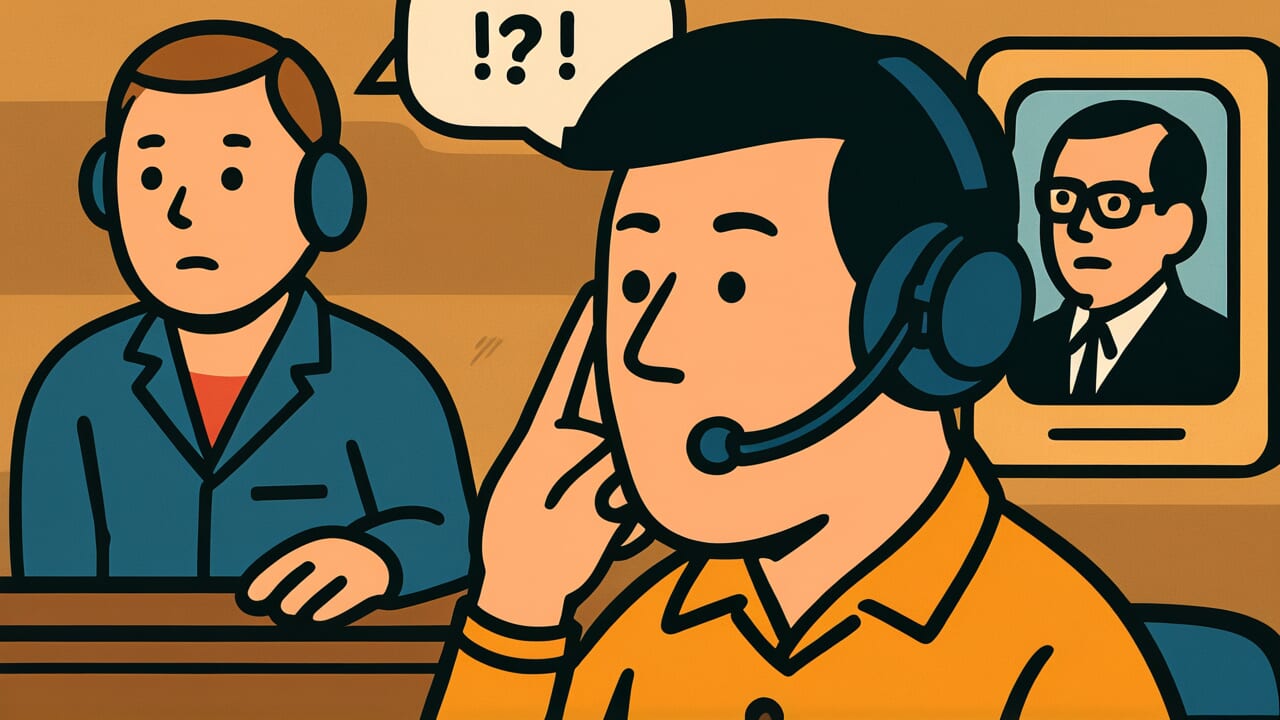How to Read “Don’t judge a dispute after hearing only one side”
Kataguchi kiite kuji wo wakuru na
Meaning of “Don’t judge a dispute after hearing only one side”
This proverb warns us not to judge a situation based on only one person’s story. Everyone tells their story from their own perspective, which naturally includes their personal bias.
Even when people aren’t trying to lie, they emphasize parts that favor them. They unconsciously leave out details that don’t support their case.
This proverb applies when you’re about to make a judgment after hearing someone’s story. It could be a conflict between friends, a workplace disagreement, or a family problem.
When there’s a dispute or difference of opinion between people, deciding based on one side alone leads to unfair judgment. To know the truth, you must hear both sides and understand each perspective.
In modern society, this teaching is extremely important when viewing social media controversies or news reports.
Origin and Etymology
This proverb is deeply connected to the judicial system of the Edo period. “Katakuchi” means one mouth, referring to only one person’s statement.
“Kuji” refers to lawsuits or trials. “Wakuru” means to judge or decide.
In Edo period magistrate offices, the basic principle was to always hear from both the plaintiff and defendant. Famous judges like Ooka Echizen always listened to the other side, no matter how convincing one party’s claim sounded.
They knew from experience that people tend to tell facts in ways that favor themselves. One side’s story alone never reveals the full truth.
This proverb likely emerged from many actual cases where wrong verdicts were made by believing only one side. From such failures, the wisdom that fair judgment requires hearing both parties became widely shared among common people.
This teaching applied not just to trials but to judgment in all aspects of daily life. It became deeply engraved in people’s hearts.
Usage Examples
- I judged their fight after only hearing her side, but as they say “Don’t judge a dispute after hearing only one side,” I should have listened to his version too
- A subordinate complained about the boss, but since “Don’t judge a dispute after hearing only one side,” I should first check the boss’s side of the story
Universal Wisdom
“Don’t judge a dispute after hearing only one side” teaches us the universal truth about human perception’s limits and the difficulty of maintaining fairness.
We humans easily assume that what we see and hear is the complete truth. When we hear a story that resonates emotionally or matches our beliefs, we feel it’s the only truth.
But in reality, every event has multiple perspectives. From each position, a completely different landscape unfolds.
This proverb has been passed down for hundreds of years because humans fundamentally want to “reach conclusions quickly” and “believe their judgments are correct.”
Suspending judgment and listening to the other side requires great patience and humility. Admitting your first impression might be wrong is never easy.
Yet our ancestors understood that this difficult path is the only road to fairness. Truth is always multifaceted, and you can never see the whole picture from just one angle.
This wisdom will hold eternal value as long as human society exists.
When AI Hears This
From an information theory perspective, judging after hearing only one side is like receiving only half the signal. It’s like listening to music through only the left channel.
Mathematically, perfectly reproducing the original sound is impossible.
According to Shannon’s sampling theorem, accurately restoring a signal requires sampling at least twice the signal’s highest frequency. Applied to human disputes, this means you need at least two independent perspectives to restore the signal of truth.
With only one side, the information loss rate theoretically exceeds 50 percent.
The concept of information entropy is even more interesting. One party’s claim contains only information selectively favorable to them. This means information uncertainty is extremely low and entropy has decreased.
True reality should contain high-entropy information like contradictions and inconsistencies between both claims. But hearing only one side completely loses this valuable information.
In other words, the “difference” between both claims is the key to seeing the truth. This differential information can only be obtained by hearing both sides and is absolutely impossible to get from one side alone.
Lessons for Today
This proverb teaches us the importance of having courage to pause and think, especially in our information-saturated age.
When you see someone being criticized on social media or in the news, try thinking from the other side’s position before hitting “like” or commenting. That alone can dramatically change how you see the world.
The same applies at work and home. When someone complains to you, don’t immediately agree. Instead, wonder “How might the other person be thinking?”
That brief pause makes you a fair and trustworthy person.
Importantly, this attitude doesn’t mean coldness or indifference. Rather, true kindness lies in not judging quickly and trying to listen to everyone’s voice.
Choosing not to judge from one side’s story alone deepens your humanity and builds trust from those around you.
An eye for discerning truth and a heart that seeks fairness. These are the irreplaceable gifts this proverb offers us living in modern times.



Comments